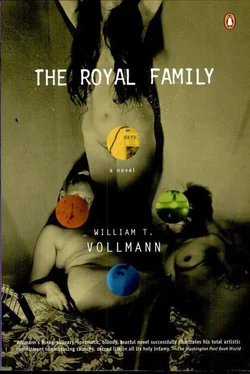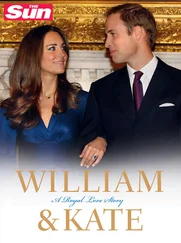Lusting all the more and nonetheless for the pale beauty of that distant cluster of towers surrounded by parkland, Bay and sky, Geary Street, which is as endless as the 38 Geary bus itself with the long black accordion-bellows between segments so that it can go around corners, now exerts itself to the fullest, contorting itself, rolling round and round past parks and murals and the occasional grafitti’d fence at Divisadero, Scott, and Steiner. At Webster it dips down through Japantown, then up again in respectful advance of Sushiland. Japantown will be as brief a diversion as Little Korea and Little Russia. Geary Street is in a lascivious hurry for riches now, its wide grey ribbon, adorned by dashed white lines and rectangular patches of blackish-grey or whitish grey asphalt, making haste to approach that angelic venue of old age—
… But it never can, never will, at least not in its present incarnation, because at Laguna and Gough fatality sets in, and suddenly Geary Street, renamed Starr King, shunts rightward past the Montessori House and Universalist Center, and the motorist who, trusting Geary Street for all these blocks, crosses Van Ness, abruptly finds himself on O’Farrell Street as he enters the Tenderloin…
How could this calamity have happened? Because Geary Street, which parallels him one block to the left, has become one-way, the other way. Continuity is impossible. Geary Street will indeed stretch all the way to the heart of the financial district; the prophecy will be fulfilled; but only that most worthless of human beings, the pedestrian, can get there that way. All is vanity.
Thus, at least, runs the explanation dictated to me by my Lutheran forbears. Hubris and graspingness must be punished. Midas’s touch is a curse.
And yet nobody else thinks so. Whenever I take a little drive down Geary Street to buy apple juice or condoms, I realize that the street has become more smug than ever. I don’t see any wriggles of shame in its pavement! And so I ask myself: What if the revocation of its bidirectionality were not a chastisement at all, but an arrangement in which it connived? What could be more important to such a street than two-way access itself?
The crux: Could Geary Street have consented to its own maiming in order to avoid being defiled by the Tenderloin? O’Farrell Street runs right through that district, and is accordingly hooker-studded, greased by the excrement of lost addicts, stamped on by pimps, leaned on by crack dealers with the serenely downcast faces of Kabuki string-players who sit cross-legged on royal cloth; whereas Geary Street almost escapes from the Tenderloin, or at worst uneasily grazes it, anxious to achieve the fancy brasserie on Geary and Mason, attended by the cylindrical pillar which showcases a smallbreasted young blonde whose face and crotch are supposed to sell bluejeans. This is the kind of prostitution which Geary Street prefers. Just as it converts emeralds to broccoli, so, too, dimly seeking to emulate the Orthodox saints whose paths it crossed back on Twenty-Sixth Avenue, it slimes reality over with its native sea-fog, until all relations between human beings have been blurred into orthodox respectability.
If I speak with the tongues of men and of angels, but have not love, I am become sounding brass, or a clanging cymbal.
I CORINTHIANS 13.1
Sacramento is River City, they say, out of logic as long and gentle as the sweep of the American River. What they are actually doing (and by “they” I mean the Chamber of Commerce) is casting about for a slogan to make Sacramento’s ghastly conformity seem somehow different— to them it wouldn’t matter whether Sacramento were Mountain City, Ocean City, Oil City, Balloon City, Army City, Love City, Emerald City, or the veriest necropolis — the gimmick’s the thing, good citizens! — But I’m not being fair. To impute to my City Fathers this much cynicism is necessarily to suppose them capable of seeing through their own inventions, and I have no reason to think that these warm-hearted merchants didn’t look around them most pridefully once they’d transformed Sacramento into River City, that they didn’t say: By golly! What a beautiful pair of rivers we have here! — even the ones whose bid for necropolisdom had been downvoted, buried in the graveyard of uncommercial ideas. And they’d have meant it; I’d stake my last share of AllCo shopping mall stock! If I were only a higher being, I’d be watching them on television, applauding their sincerity. At least I can do that much for John. Miss Deborah Treisman, who allowed some pages of this novel in Grand Street, and rejected others from The New Yorker, asserted that John was a mere caricature, like the so-called “postcard view” from Russian Hill of pale buildings and accidental trees clothing the steep, fog-colored slopes of the city. Deborah, I’m absent-minded, I admit; I make mistakes. What if, resting jovially upon my labors, like the capitalist compradores who now sit on the deck of the Virgin Sturgeon restaurant, toasting their newborn River City, what if I’d forgotten to bring anybody to life? The Queen’s but a figment, mouthpiece of my pompous symbology, her whores only grimy cardboard props dripping with the semen of the vulgar; Irene similarly assumes a merely erotic aspect; Henry Tyler remains limited to being Henry Tyler, which is to say, a grey nothingness. But John, now — oh, but John! How can he be a caricature, when I can’t get rid of him?
A masculine Christian name, that of John the Baptist and John the Evangelist, explains my Oxford English Dictionary; hence, from early ME. times one of the commonest in England. Also used as a representative proper name for a footman, butler, waiter, messenger, or the like. John’s also a priest; he’s John-a-dogs the dog-whipper (a very unlikely occupation for this John, who loves Mugsy); he’s John-of-all-trades, which might well be true; in my slang dictionary he’s a dried fish and a policeman; on the San Francisco streets he’s a customer of prostitutes. John, in short, is Everyman. Deny him life, and we’d be compelled by all statutes of consistency to reduce the Evangelist first to torpor, then to the veriest non-existence.
John himself, I am sure, would plead the real and essential nature of his own being, without disfiguring himself with the least tic or twitch of affectation. And whatever he says, he means. In a word, John was born with the gift of sincerity.
Thus the conception of River City, hanging in the air like a rainbow mist, engaged John’s sincerity. Our Sacramento boy had swum, waded, waterski’d, rafted, fished, and frogged all around town. He believed in the riverine nature of his home town and even thought he understood it. John daydreamed less than most, but sometimes when he was tired or when Mr. Singer exasperated him, he let his mind rise higher than the Transamerica Pyramid, then higher still, the fish-blue fog of San Francisco gradually getting as white as the paint on the fuselage of a brand-new airplane, then blue beyond the clouds’ white fur, and even before Captain John has activated the FASTEN SEATBELTS sign the eyes of lordly passengers already begin to be beguiled by farmland checkerboards — surprising how many farms are still left, squatting on their squares of green and brown! Now to the south one can see the wide silver shining of the wet Delta. In spring the fields are so lushly green as to approach turquoise. Summer quickly comes to blast them. — Ladies and gentlemen, in preparation for landing, please raise your innermost barriers and insure that your souls are securely stowed beneath your feet and that your mindlessness is in full, upright, LOCKED position; welcome to Sacramento, where, low to the ground, it’s all so sad and dull.
Читать дальше












